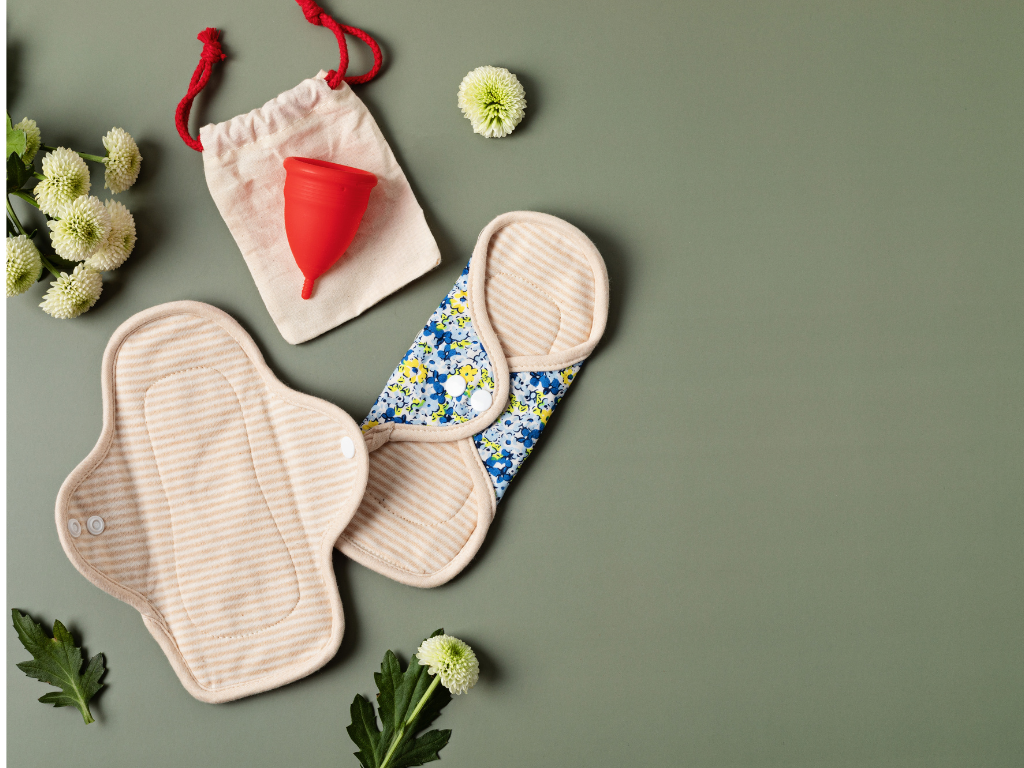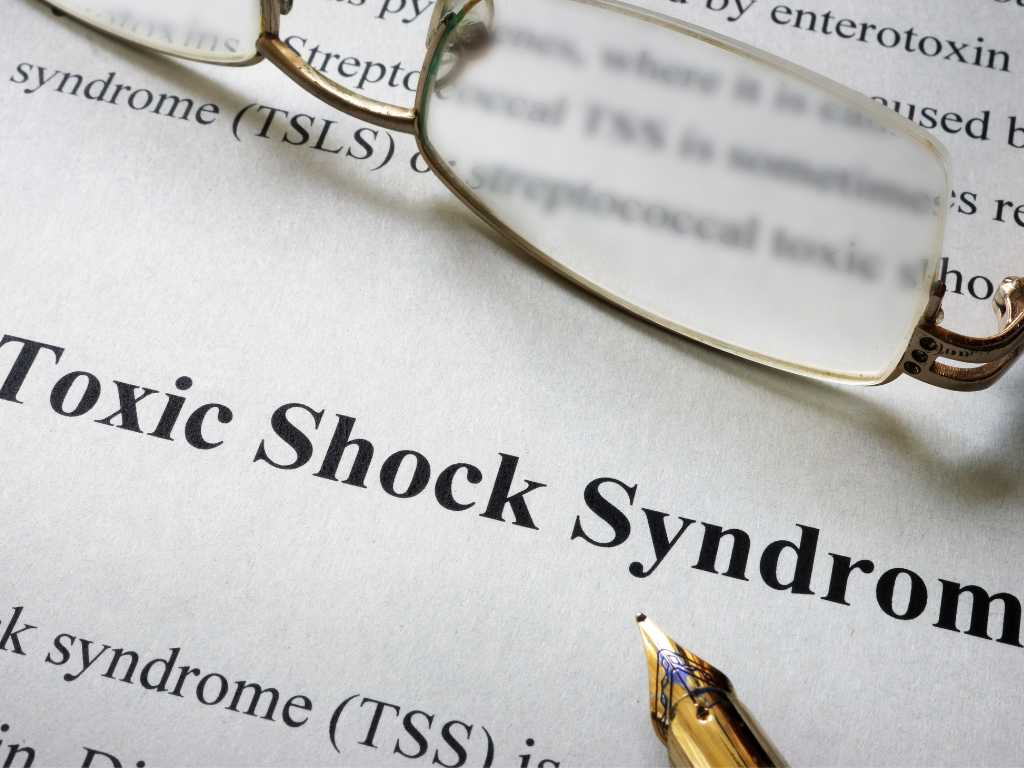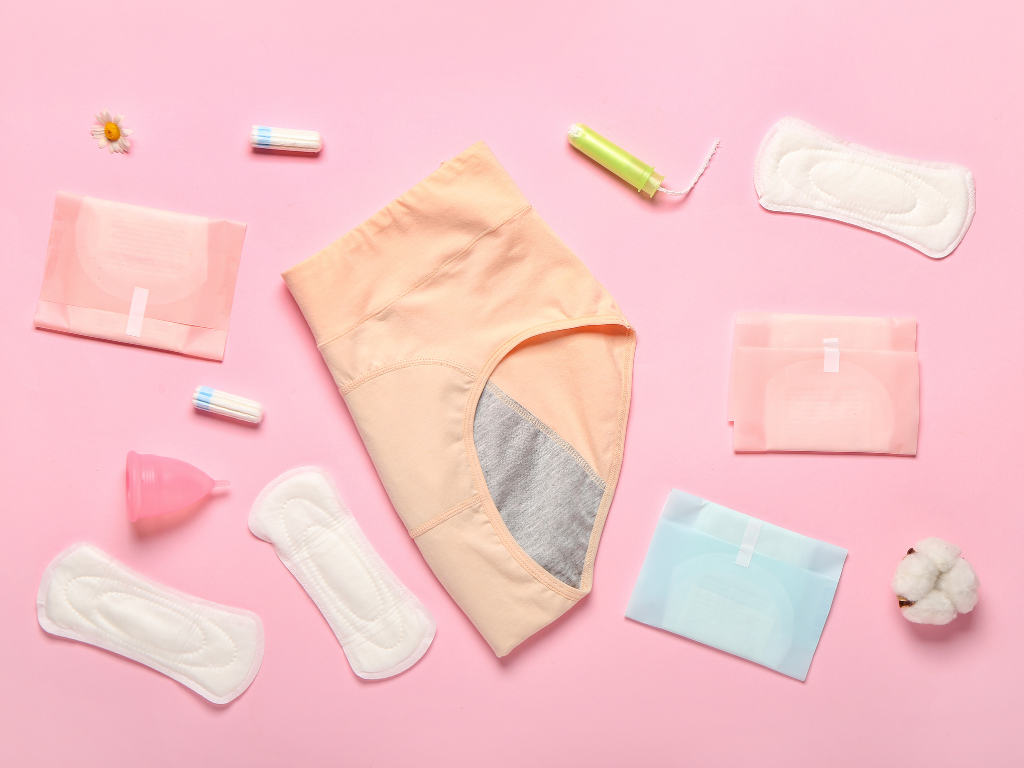Are you tired of dreading that time of the month because of what it does to your wallet? Are you tired of shelling out money for tampons that seem to be getting more and more expensive even though most countries, including the US, do not even test them to make sure that they are safe enough to insert directly into your body?
You read that right...many of us are paying higher and higher prices to poison our bodies with untested toxic materials. It's time to take control of your period and your wallet. In this article, we will dive into the world of reusable feminine products and explore the holistic methods that can not only save you money but also provide long-lasting relief from avoidable strains on your bank account like high-flow periods. Say goodbye to the tampon tax and hello to your birthright: a luxuriously sumptuous period experience. Get ready to transform your period problems...now!
The Tampon Tax
The Inequity of the Tampon Tax
When it comes to periods, there is an unfortunate reality that many women in the United States face: the tampon tax. This unfair tax affects approximately 2-3% of a woman's annual income, making it not only a financial burden but also an issue of gender inequality.
Why should we have to pay for a natural process that occurs every month? It's like being taxed for breathing or eating. Menstruation is a normal bodily function, and it is unjust to place a financial burden on women for something that is as expected as emptying one bowels or bladder
To fight back against the tampon tax and take control of your period experience you can make choices like exploring reusable feminine-care products, which requires short-term investments that easily pay for themselves in the long run.
Reusable Feminine Products
Embracing Sustainability, Safety, and Cost-Effectiveness
We've established that using our earnings to pay for our period care is ridiculous and needs to change. I'm happy to report that there are incredible forces like Claire Coder at Aunt Flow who is bringing the fight for Menstrual Equity including access to free tampons to state agencies and large for-profit and non-profit organizations!
Until free access to tampons and pads becomes a reality, there are other ways that help the planet, ensure our body's safety (goodbye Toxic Shock Syndrome), and save money all at the same time: reusable feminine products.
Let's explore the three main types of reusable products: reusable pads, menstrual discs, and menstrual cups.
Reusable pads are made of soft, absorbent fabric and come in various sizes and designs. They can be washed and reused for years, saving you from constantly buying disposable pads that end up in landfills. Not only do reusable pads contribute to reducing waste, but they also provide a comfortable and chemical-free option for managing your flow.
Menstrual discs are flexible, rimless discs that are inserted into the vaginal canal to collect menstrual shedding. They are discreet, easy to use, and can be worn for up to 12 hours. With proper care and cleaning, a single menstrual disc can last for several menstrual cycles, resulting in significant savings compared to buying disposable products every month.
Menstrual cups have gained popularity in recent years for their convenience and eco-friendly nature. Made of medical-grade silicone or latex, menstrual cups are inserted into the vagina to collect menstrual shedding. They can be worn for up to 12 hours and can last for several years with proper care. By investing in a menstrual cup, once every three to four years, you save hundreds of dollars.
When considering reusable products, it's essential to find the ones that suit your personal preferences and needs--and it bears mentioning that the easiest products to use for the long term (I am partial to Menstrual Cups) do take about one or two cycles to find their "fit" with your body. Some women may prefer the comfort and familiarity of reusable pads, while others may find menstrual discs or cups more convenient for their active lifestyles. There are so many brands and styles available, and in my experience, you can't mess this up!
By making the switch to reusable feminine products, you're making the small change that makes a big difference for your body, your wallet and the planet.

Toxic Shock Syndrome (TSS)
We've mentioned it a few times so far in this article, but now we will take a closer look at TSS and why switching to reusable feminine products ensures peace of mind when it comes to our body's health.
Toxic shock syndrome (TSS) is a rare but potentially life-threatening condition caused by certain strains of bacteria, primarily Staphylococcus aureus (staph) and Streptococcus pyogenes (strep).
Facts:
1. Incidence: TSS is considered a rare condition, with an estimated incidence rate of 0.8 to 3 cases per 100,000 people per year.
My commentary:
Life is life and if we can avoid loss, why wouldn't we?
2. Age and Gender: TSS can affect individuals of all ages, but it is most commonly reported in menstruating women using tampons. However, it can also occur in men, children, and postmenopausal women.
My commentary:
none.
3. Tampon-Related TSS: In the past, tampon usage was associated with a higher risk of developing TSS. However, with the introduction of lower-absorbency tampons and increased awareness, the incidence of tampon-related TSS has significantly decreased. Today, tampon-related TSS accounts for less than half of reported cases.
My commentary:
Lower-absorbency tampons = higher frequency of use = higher volume of tampons purchased, especially if you're a currently high-flow menstruation (we can change that by the way!).
4. Staphylococcal TSS: Staphylococcal TSS is the most common type, accounting for approximately 80% of reported cases. It is commonly associated with skin infections, surgical wounds, or the use of super-absorbent tampons.
My commentary:
Those of us using super-absorbent tampons are dealing with heavy flow, which means we are very likely experiencing pain in the form of cramps and aches. We could also be facing major consequences like needing to take sick days every month as a a result of this high flow and pain. Those of us who suffer the most from Menstrual Imbalance have to deal with financial, time, pain, emotional, and self-inflicted strains that we wouldn't wish on our enemies. This is not the way that we are meant to live and if you identify with this kind of strain, please know that there is a way out of the suffering and it requires no medication, diet, special exercises, special therapies, or massive amounts of money and time spent on specialists.
5. Streptococcal TSS: Streptococcal TSS is less common but tends to be more severe. It is often associated with invasive streptococcal infections, such as necrotizing fasciitis (flesh-eating bacteria) or streptococcal pneumonia.
My commentary:
none.
6. Mortality Rate: The mortality rate of TSS has decreased significantly over the years, thanks to improved awareness, early diagnosis, and prompt treatment. Currently, the mortality rate is estimated to be around 3-5%.
My commentary:
This is avoidable, let's bring it to zero.
7. Recurrence: Once an individual has had TSS, they are at an increased risk of recurrence. The risk of recurrence is estimated to be around 30%, but it can vary depending on the individual's immune response and underlying health conditions. It's important to note that while TSS can be severe, it is still a rare condition.
My commentary:
"Rare" is relative. Avoidable loss of life and the effect it has on one's friends and family should not be handled so casually. If you have suffered from TSS, please make finding the right reusable period-care product a high priority.
8. The US does regulate the cotton that goes into tampons, but the regulations primarily focus on ensuring the safety and effectiveness of the final product rather than specifically targeting the cotton used in tampons. The Food and Drug Administration (FDA) regulates tampons as medical devices and sets standards for their manufacturing, labeling, and performance.The FDA requires tampon manufacturers to adhere to certain quality control measures, including using materials that are safe and suitable for their intended use. Unlike some countries, there are no specific regulations solely dedicated to cotton in tampons. The FDA's oversight ensures that the cotton used meets certain safety and quality standards. Cotton used in tampons is typically made from natural fibers and undergoes processing to remove impurities and ensure it is free from harmful substances. Concerns have been raised regarding the potential presence of pesticides or other chemicals in cotton-based tampons. Advocacy groups and consumers have called for more transparency in labeling and testing of tampons, urging manufacturers to provide information about the sourcing and processing of cotton used in their products.
My commentary:
We cannot afford to wait for the US to catch up with the safety regulations of other countries to ensure our safety because our lives are on the line. We know that corn syrup is harmful to our health, but we are one of the few countries that still drinks Coke with corn syrup--and that affects Americans of all genders. This may be a fight that the FDA is not going to fight for us, so, much like the journey to ending period problems without suffering, it is up to us to police our bodily health. It is up to us to either consciously purchase pesticide-free, organic tampons or to choose reusable products.

Ready to tap into the incredible power of your period and put an end to period problems? Join the Fierce Gentleness™ Collective today and begin the shift to pain-free, PMS-free, consistent cycles! It's time to embrace your natural rhythms and discover the endless possibilities that await you. Join us now and start living your most sumptuous, empowered life!
Next Steps
It is clear that the tampon tax is a burdensome expense for women. It is unjust to have to pay for a natural process that occurs every month. However, there are solutions that can help us save money, save our lives, and save the planet.
Reusable feminine products, such as reusable pads, menstrual discs, and menstrual cups, offer a cost-effective alternative to disposable, single-use, products. By paying once for a product that lasts 2-5 years, we can save a significant amount of money in the long run.
Not only do reusable products offer financial benefits, but they also provide health advantages. Disposable pads and tampons are not tested for hazardous bacteria and pesticides, which can pose risks to our well-being. In contrast, most reusable products are made with medical-grade materials, eliminating the risk of toxic shock syndrome and other health concerns.
Another area where we can save money is by buying fewer tampons as a result of a diminished flow. Many of us who experience high flow are also on pain medication. The high costs of pain relief medications, along with the potential dangers of overusing them, can add up over time. By addressing the root causes of menstrual pain through holistic methods, we can reduce our reliance on way too many tampons, on medication, doctor visits, and prescription painkillers.
Making the switch to reusable feminine products and taking care of our health and the that of the planet brings us one step closer to ending period problems. We can create a future where pain-free periods are the norm; we can embrace our lives with joy, ease, space, and grace.


0 comments